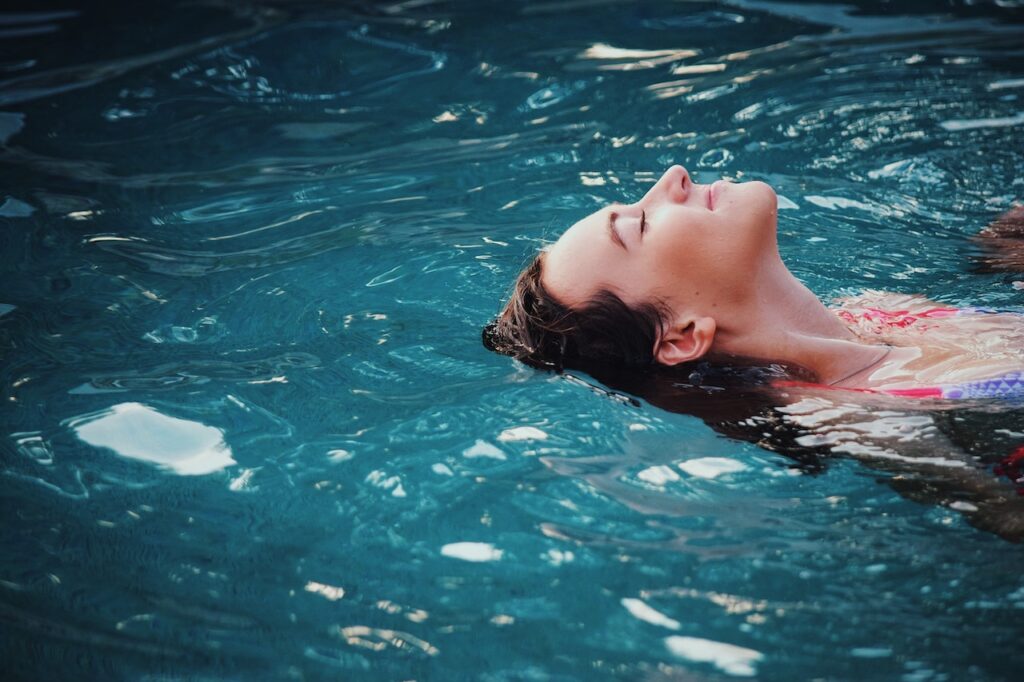What tremendous news regarding these Christmas holidays!
After a really tough year of bushfires and COVID-19, here’s something to celebrate. Announced this week, the Queensland/NSW border has reopened (and Victoria will be welcomed back too if all goes well).
Just in time for Summer, so we can disconnect from our worries and enjoy the festivities.
Do you struggle to disconnect from work when you go on holidays?
If so, then you’ve probably come back feeling like you’ve never been?
You’re not a lone, but like many women that spend a good deal of their vacation working and/or worrying about the future so in fact sabotage their opportunity to rest and recharge.
Last Winter, I was invited to write for Good Health & Wellbeing Magazine on this very topic because at one time or another we’ve all struggled to disconnect from work and been tempted to respond to emails or call the office to check up on a few things.
FROM THE ARTICLE:
Picture this: you’re lying beside the pool, a delicious cocktail within arm’s reach and a tropical breeze gently washing over you.
Bliss! It’s so tranquil, and you’ve waited so long for this trip, yet… you can’t help wondering what’s happening in the office right now.
How did that difficult client respond to the email you fired off before you left? What’s happening with that project you’re in charge of? Within seconds you’ve picked up your phone and logged into your emails, your holiday vibe melting away faster than the ice in your cocktail.
Welcome to vacation sabotage, a situation where we struggle to disconnect from work. As stressed-out workers, used to rushing through life at a hundred miles an hour, only to find it incredibly challenging to stop and fully enjoy leisure time.
You might be physically on holiday but mentally, you’re still at work – which is anything but the purpose of annual leave.
While there’s nothing wrong with caring about your job and wanting to excel professionally, getting space from work regularly is actually one of the best things you can do to help yourself perform better in the long run.
Of course, many people have absolutely no problem switching off, unplugging or disconnecting from work and hitting that resort with little regard for what’s happening at home. But for others, it’s a different story.
A Danish study published in the journal Nature Communications earlier this year found our collective attention spans have reduced in recent years thanks to social media and the relentless 24/7 news cycle.
Fiona Craig, a life-balance coach who helps people live more satisfying lives, says she regularly encounters stressed out clients who struggle to switch off.
“The way our culture is, we’re used to so much information and our attention going from the notification on our laptop to someone calling us, and so on,” she says.
“In the ’80s and ’90s, I could sit and read a book, but now I’m reading a page or two and my mind’s jumping to, ‘Oh, we’re going to have lunch now’, or something like that. I find I have to calm down and bring my thoughts back to finishing that chapter.”
Remember the last time you didn’t have to rush everywhere? No? You’re not alone. Being away from the office is a great time to recapture that feeling.
To make the most of your vacation, Fiona recommends not over scheduling your time.
“The whole point of the holiday is to actually have a break,” she says.
“As much as I love running around to [look at] temples and eating, it’s also about doing nice nurturing activities, like maybe a massage, a yoga class or walks in nature.”
Being fully present in the experiences you’re having is also key.
“Really savour every moment,” Fiona advises.
“Sometimes I won’t even take pictures because I want to be fully present and enjoying the smells, the sights and the sounds of that place. Technology kind of breaks us away from the moment.”
Leisure sickness
A trap that busy people often fall for before their holidays is burning the midnight oil to get through all your tasks in the period just before you leave, which means you spend the first few days of the trip completely exhausted.
That stress increases your chances of coming down with ‘leisure sickness’, a term for illnesses that typically hits certain people on holidays or weekends.
Dutch researcher Professor Ad Vingerhoets says you’re more likely to come down with leisure sickness if you’re a perfectionist in your work and take your professional responsibilities very seriously.
Overloading your schedule before you leave increases your body’s production of the stress hormone cortisol, which will lower your immunity to infections such as the common cold, so it’s probably better if you start winding down gradually before you leave.
Effective Ways to Wind Down
If you work in a team, ask a colleague to provide you with a small report: Perhaps one or two paragraphs of what transpired during your break. “That stops you checking hundreds of emails to try and work out what’s happened while you’ve been away,” says Fiona.
Set your out-of-office message a day early: “And list the day after you’re back [as your return date] so you don’t get bombarded the day you’re back at work,” Fiona suggests.
Put limits on smartphone use: “If you have to take your phone with you, perhaps set a time for half an hour or one hour, maybe in the evenings, to check emails,” Fiona suggests.
Learn to be okay with boredom: It’s something you probably normally dodge by reaching for your smartphone (perhaps more out of habit than necessity). If doing nothing makes you anxious, try some deep breathing exercises to centre yourself.
Originally published NOV 25, 2019 BY TRUDIE MCCONNOCHIE for Good Health & Wellbeing Magazine online & print.
Photo by Haley Phelps on Unsplash














